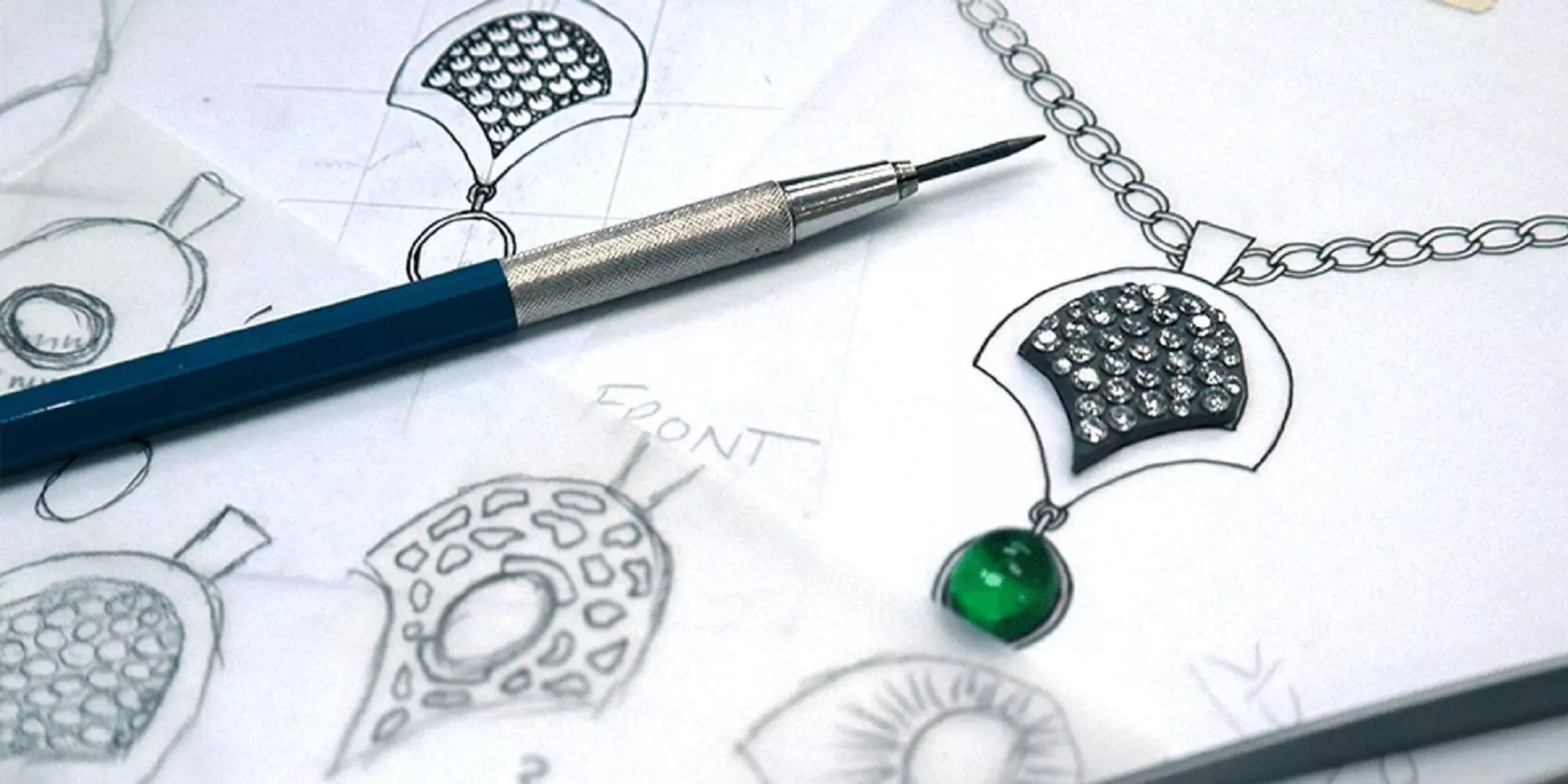A Comprehensive Guide to Jewellery Jobs in the UK: Uncovering Opportunities and Insights
Related Articles: A Comprehensive Guide to Jewellery Jobs in the UK: Uncovering Opportunities and Insights
Introduction
In this auspicious occasion, we are delighted to delve into the intriguing topic related to A Comprehensive Guide to Jewellery Jobs in the UK: Uncovering Opportunities and Insights. Let’s weave interesting information and offer fresh perspectives to the readers.
Table of Content
A Comprehensive Guide to Jewellery Jobs in the UK: Uncovering Opportunities and Insights

The UK’s jewellery industry is a vibrant and multifaceted sector, offering a diverse range of career paths for individuals with a passion for craftsmanship, design, and the beauty of precious materials. From traditional goldsmithing to contemporary jewellery design, the industry encompasses a spectrum of specializations, catering to a wide array of skills and interests. This guide aims to provide a comprehensive overview of the various roles within the UK’s jewellery landscape, highlighting the skills required, career progression pathways, and the rewards of embarking on a career in this captivating field.
Understanding the Landscape: A Diverse and Thriving Sector
The UK’s jewellery industry boasts a rich history, with a legacy of craftsmanship and innovation that continues to shape the sector today. The industry’s success stems from a confluence of factors, including:
- A Renowned Heritage: The UK has a long tradition of skilled craftsmanship in jewellery, evident in the exquisite pieces produced by master artisans throughout history. This legacy continues to inspire and influence contemporary jewellery design, attracting both local and international recognition.
- A Global Hub for Design and Innovation: The UK has emerged as a leading center for contemporary jewellery design, with renowned designers and brands pushing the boundaries of creativity and craftsmanship. The industry’s focus on innovation and experimentation ensures a dynamic and evolving landscape.
- A Strong Retail Presence: The UK boasts a robust retail infrastructure for jewellery, with a wide range of independent boutiques, high-street retailers, and online platforms catering to diverse customer needs and preferences. This strong retail presence provides ample opportunities for individuals seeking careers in sales, marketing, and customer service.
- A Thriving Manufacturing Base: The UK’s jewellery industry is supported by a network of skilled manufacturers and workshops, producing a wide range of jewellery pieces from bespoke creations to mass-produced items. This manufacturing base offers opportunities for individuals seeking careers in production, technical skills, and quality control.
Exploring Career Paths: A Spectrum of Opportunities
The UK’s jewellery industry offers a diverse range of career paths, catering to individuals with different skill sets and aspirations. Here are some of the most prominent roles within the sector:
1. Design and Creation:
- Jewellery Designer: This role involves conceptualizing and designing jewellery pieces, translating creative visions into tangible creations. Designers often collaborate with clients to understand their needs and preferences, and may work with CAD software to create 3D models of their designs.
- Goldsmith: A skilled goldsmith is responsible for crafting jewellery pieces using traditional techniques, such as casting, soldering, and setting gemstones. This role requires meticulous attention to detail, a steady hand, and a deep understanding of metalworking techniques.
- Gemologist: Gemologists specialize in the identification, grading, and valuation of gemstones. They possess a comprehensive knowledge of gemmology, including the physical and optical properties of gemstones, and are often involved in sourcing and selecting gemstones for jewellery pieces.
2. Manufacturing and Production:
- Bench Jeweller: Bench jewellers are skilled artisans who work on the production of jewellery pieces, carrying out tasks such as casting, soldering, and polishing. They are responsible for the quality and accuracy of their work, adhering to strict standards of craftsmanship.
- Production Manager: Production managers oversee the manufacturing process, ensuring efficient production and adherence to deadlines. They manage teams of bench jewellers and other production staff, ensuring the smooth flow of work and the delivery of high-quality products.
- Quality Control Inspector: Quality control inspectors are responsible for inspecting jewellery pieces throughout the production process, ensuring adherence to quality standards and identifying any defects. They play a crucial role in maintaining the reputation and integrity of the brand.
3. Retail and Sales:
- Jewellery Sales Associate: Sales associates provide expert advice to customers, guiding them through the selection process and ensuring a positive customer experience. They possess a strong knowledge of jewellery styles, trends, and materials, and are adept at building rapport and trust with clients.
- Retail Manager: Retail managers are responsible for the overall management of a jewellery store, including sales, customer service, stock management, and staff training. They play a key role in driving sales and ensuring customer satisfaction.
- Visual Merchandiser: Visual merchandisers are responsible for creating visually appealing and engaging displays within jewellery stores, showcasing products in a way that attracts customers and inspires purchases. They have a strong understanding of aesthetics and visual storytelling.
4. Other Roles:
- Jewellery Historian: Jewellery historians research and document the history of jewellery, studying its evolution, cultural significance, and artistic influences. They may work in museums, galleries, or academic institutions, contributing to the preservation and understanding of jewellery heritage.
- Jewellery Writer: Jewellery writers create content about jewellery, including articles, reviews, and blog posts. They possess a strong understanding of the industry, a keen eye for detail, and the ability to communicate complex concepts in an engaging and informative manner.
- Jewellery Photographer: Jewellery photographers capture the beauty and detail of jewellery pieces, creating images that are used for marketing, advertising, and online platforms. They have a strong understanding of lighting, composition, and post-production techniques.
Skills and Qualifications: A Foundation for Success
A career in the jewellery industry requires a unique blend of skills, both technical and creative. Some of the essential skills and qualifications for success in this field include:
- Artistic Talent and Creativity: A strong sense of design, an eye for detail, and the ability to translate creative visions into tangible creations are essential for roles involving design and craftsmanship.
- Technical Skills: Proficiency in metalworking techniques, such as casting, soldering, and setting gemstones, is crucial for roles in jewellery production.
- Gemological Knowledge: A deep understanding of gemstones, including their identification, grading, and valuation, is essential for roles involving gemmology.
- Business Acumen: For management and sales roles, a strong understanding of business principles, including marketing, sales, and customer service, is essential for success.
- Communication Skills: Effective communication skills are essential for building relationships with clients, collaborating with colleagues, and communicating ideas clearly and concisely.
- Passion for Jewellery: A genuine passion for jewellery is a driving force for success in this industry, motivating individuals to excel in their chosen roles and contribute to the ongoing evolution of the sector.
Education and Training: Building a Strong Foundation
Individuals interested in pursuing a career in the jewellery industry have a range of educational and training options available to them:
- Apprenticeships: Apprenticeships provide a structured learning environment, combining practical experience with theoretical knowledge. Apprenticeships are particularly relevant for roles involving traditional jewellery making techniques.
- Vocational Courses: Vocational courses offer specialized training in specific areas of jewellery making, such as gemmology, jewellery design, or metalworking.
- Degrees: Degrees in jewellery design, art and design, or related fields provide a comprehensive understanding of design principles, materials, and industry practices.
- Short Courses: Short courses offer specialized training in specific skills, such as CAD design, gemstone identification, or jewellery repair.
Career Progression: A Path of Growth and Development
A career in the jewellery industry offers opportunities for career progression, allowing individuals to advance their skills and knowledge and take on more senior roles. Common career progression paths include:
- Bench Jeweller to Master Craftsman: Experienced bench jewellers can progress to become master craftsmen, specializing in specific techniques or types of jewellery.
- Jewellery Designer to Creative Director: Talented designers can progress to leadership roles, overseeing design teams and shaping the creative direction of a brand.
- Jewellery Sales Associate to Store Manager: Successful sales associates can progress to management roles, leading teams, driving sales, and ensuring a positive customer experience.
FAQs: Addressing Common Queries
1. What are the salary expectations for jewellery jobs in the UK?
Salaries for jewellery jobs in the UK vary depending on the role, experience, and location. Entry-level positions may offer salaries in the range of £18,000 to £25,000 per year, while experienced professionals can earn upwards of £40,000 per year.
2. What are the job prospects for jewellery professionals in the UK?
The UK’s jewellery industry is a growing sector, offering good job prospects for skilled professionals. Demand for skilled jewellery makers, designers, and sales professionals is expected to remain strong in the coming years.
3. What are the benefits of working in the jewellery industry?
A career in the jewellery industry offers a number of benefits, including:
- Creative Expression: The opportunity to express your creativity through the design and crafting of jewellery pieces.
- Work with Precious Materials: The opportunity to work with luxurious and timeless materials, such as gold, silver, and gemstones.
- Skill Development: The opportunity to develop specialized skills in jewellery making, design, and gemmology.
- Job Satisfaction: The satisfaction of creating beautiful and meaningful pieces of jewellery.
- Career Progression: The opportunity to advance your skills and knowledge and take on more senior roles.
4. How can I find jewellery jobs in the UK?
There are a number of resources available to help you find jewellery jobs in the UK, including:
- Online Job Boards: Websites such as Indeed, LinkedIn, and Totaljobs list a wide range of jewellery jobs.
- Industry Associations: Organizations such as the National Association of Jewellers (NAJ) and the Goldsmiths’ Company offer job boards and networking opportunities.
- Trade Shows and Events: Attending trade shows and events related to the jewellery industry can be a great way to network and make connections.
Tips for Success: Navigating the Jewellery Industry
- Develop a Strong Portfolio: Showcase your skills and creativity through a well-curated portfolio of your jewellery designs and craftsmanship.
- Network with Industry Professionals: Attend industry events, join professional organizations, and connect with individuals in your field.
- Stay Up-to-Date with Trends: Keep abreast of the latest trends in jewellery design, materials, and technology.
- Develop Your Business Skills: For those interested in starting their own jewellery business, develop your business skills in areas such as marketing, sales, and finance.
Conclusion: Embracing a Rewarding Career Path
The UK’s jewellery industry offers a wealth of opportunities for individuals seeking a fulfilling and creative career path. By developing the necessary skills and qualifications, embracing the industry’s rich heritage, and staying abreast of emerging trends, individuals can embark on a rewarding journey in this captivating field. The industry’s diverse range of roles, from traditional craftsmanship to contemporary design, caters to a wide array of skills and interests, ensuring that there is a place for everyone who shares a passion for the beauty and artistry of jewellery.








Closure
Thus, we hope this article has provided valuable insights into A Comprehensive Guide to Jewellery Jobs in the UK: Uncovering Opportunities and Insights. We hope you find this article informative and beneficial. See you in our next article!
